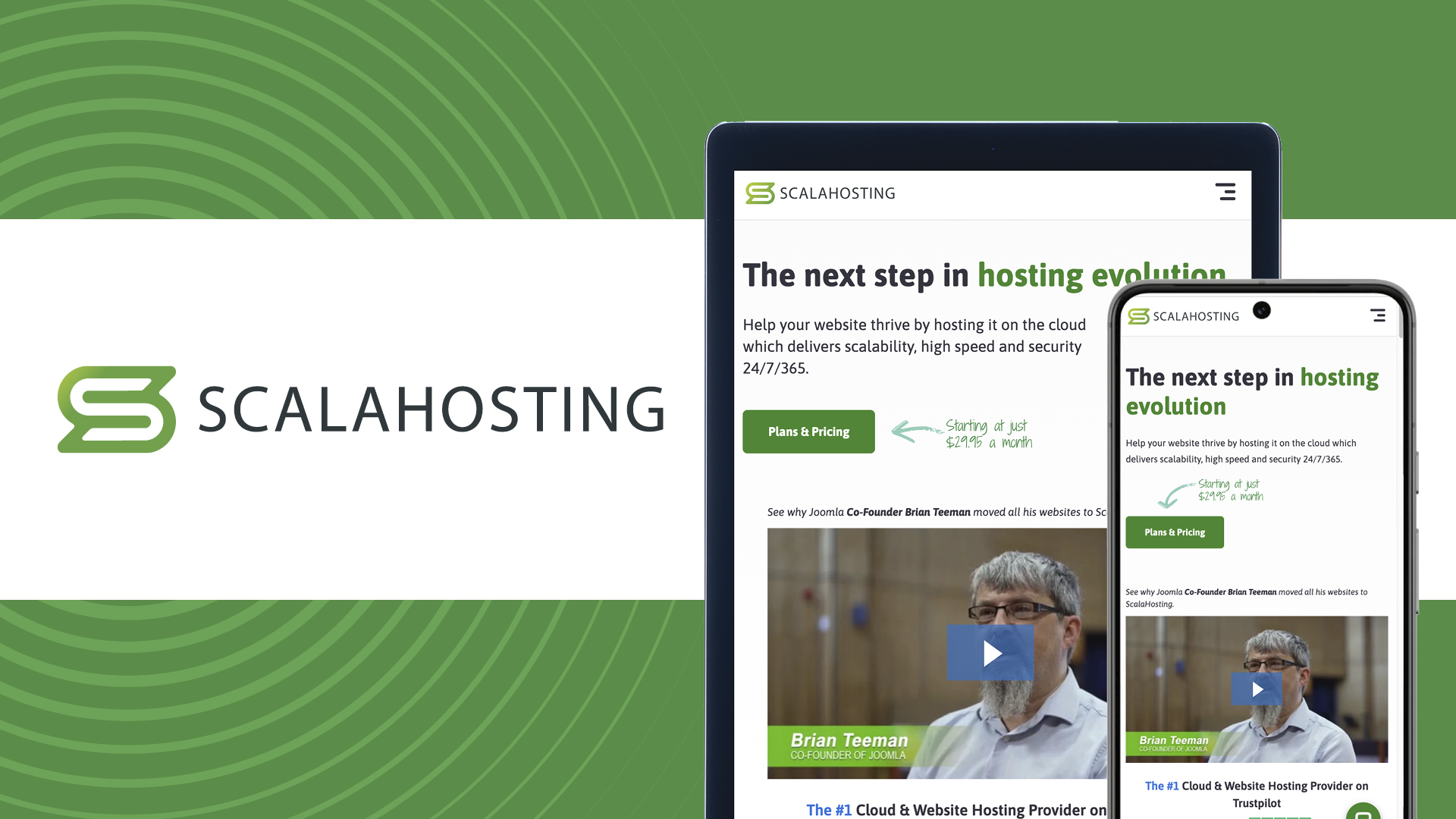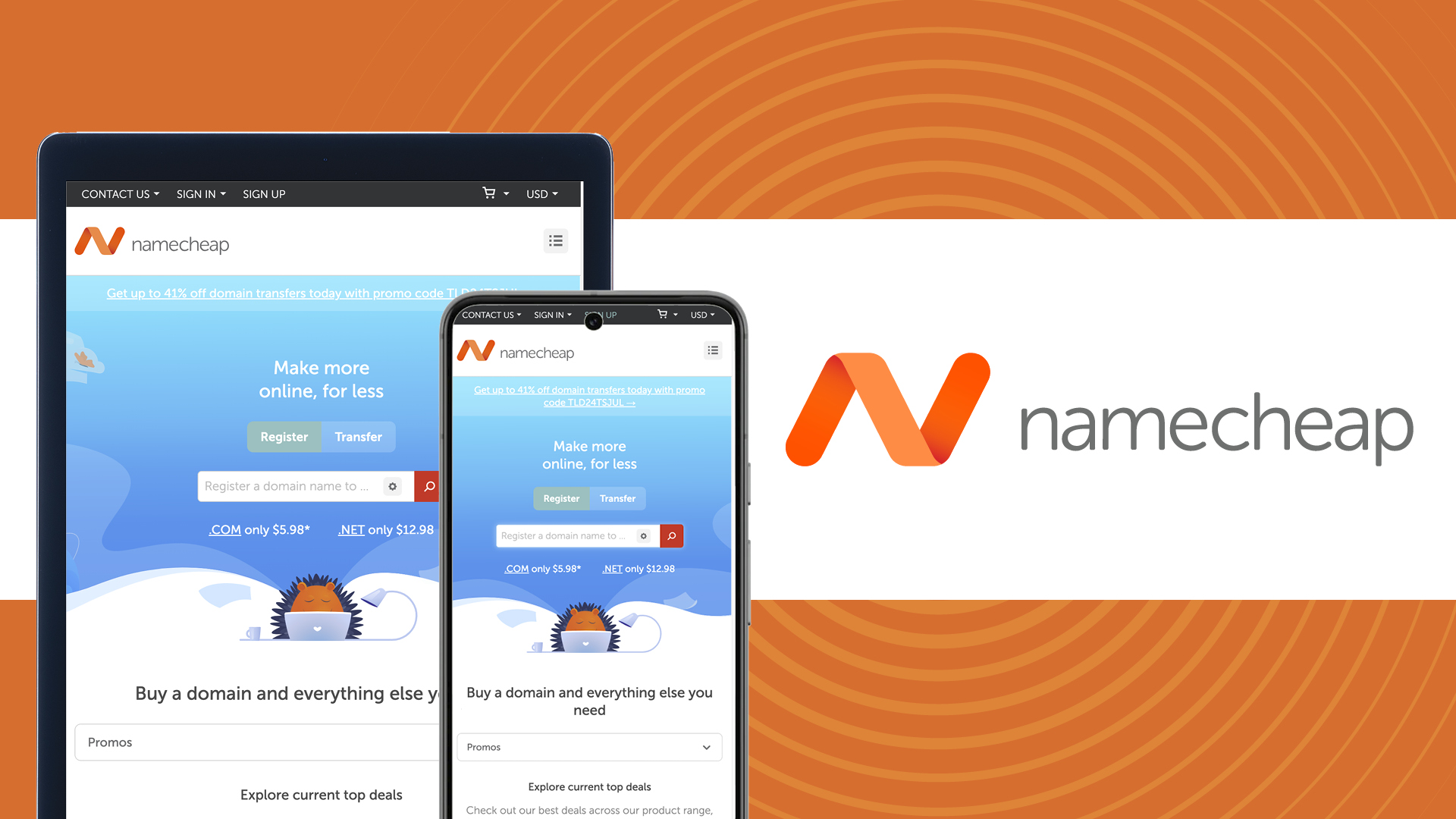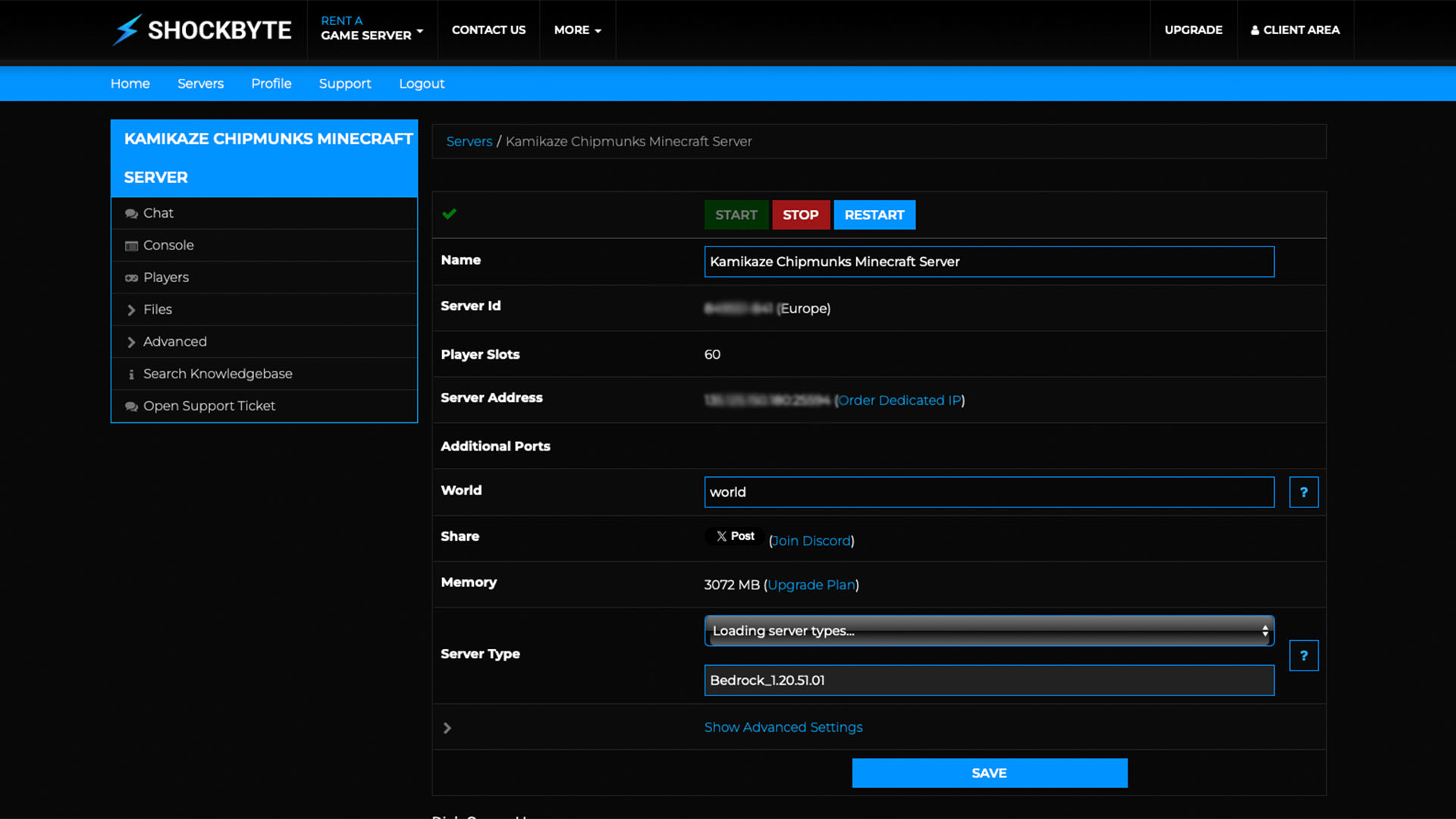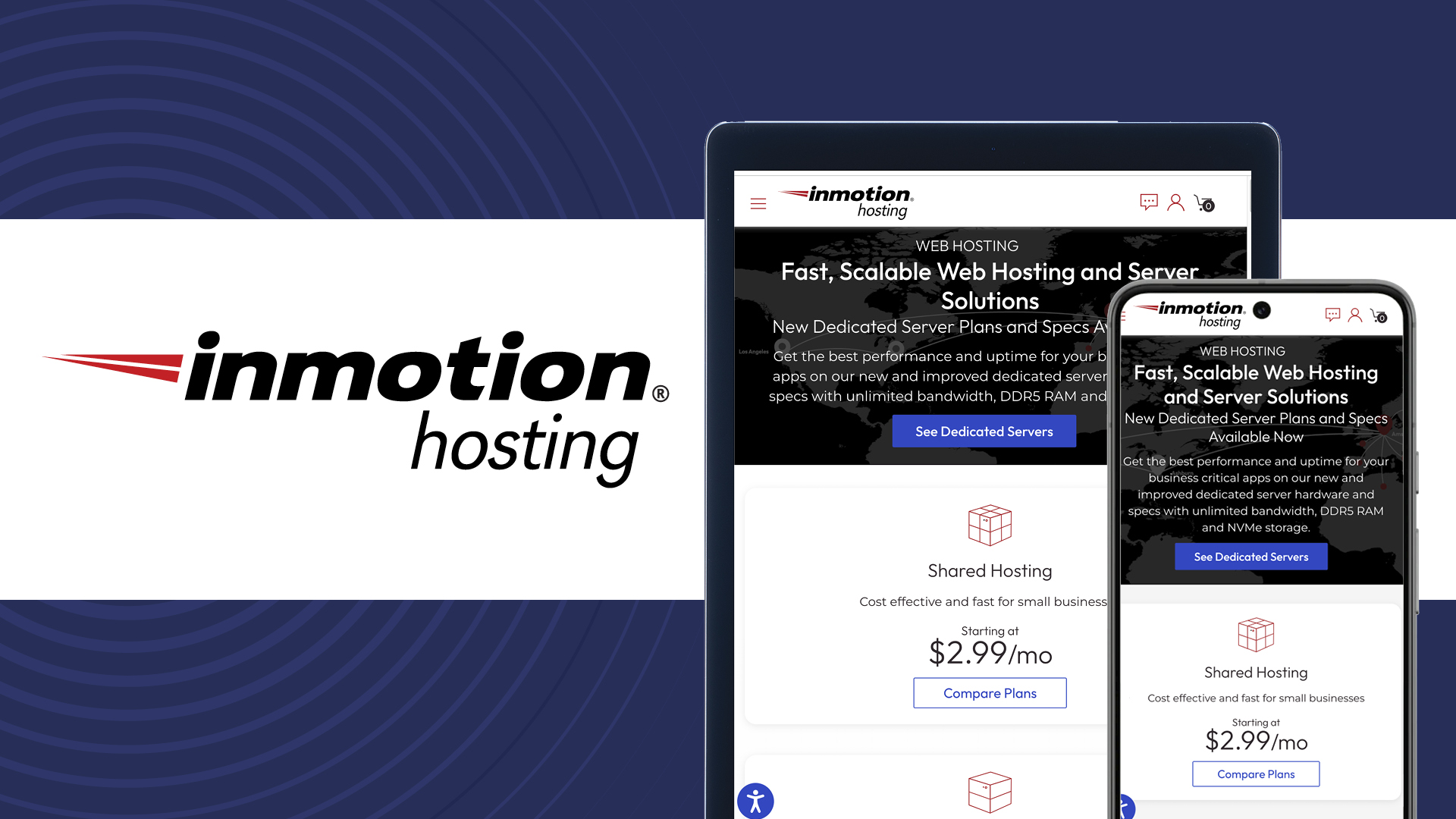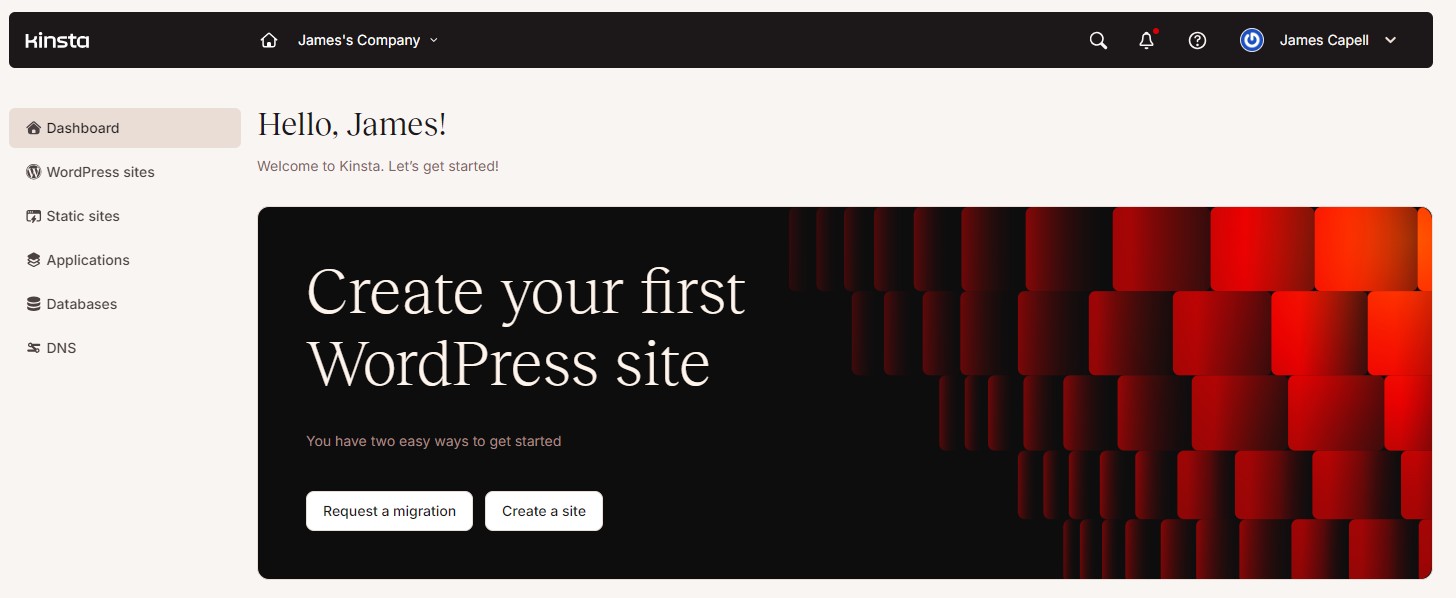Best web hosting services: tested and reviewed for 2026
My web hosting recommendations for 2026
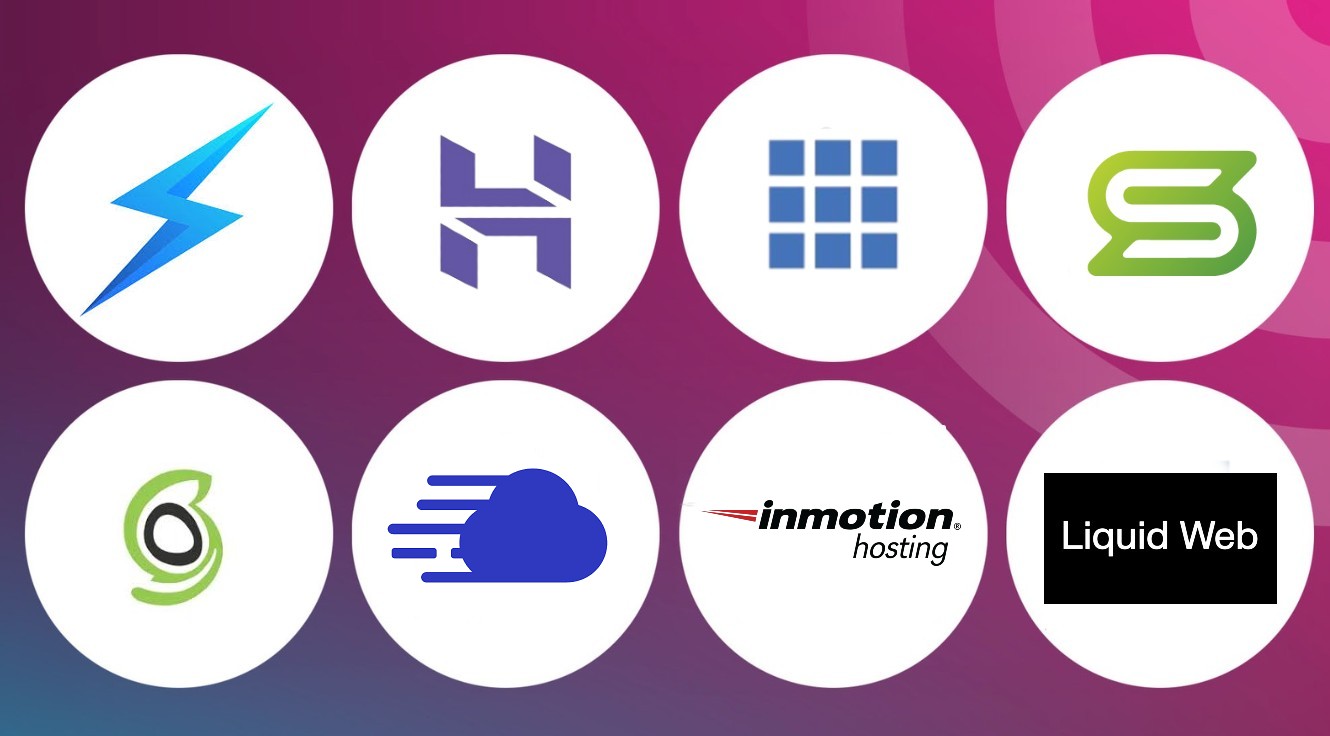
Sign up for breaking news, reviews, opinion, top tech deals, and more.
You are now subscribed
Your newsletter sign-up was successful
The web hosting landscape is changing fast. A lot of the best web hosting providers now offer a similar experience to the best website builders. What was once infrastructure as a service is looking more like software as a service.
Shared hosting is getting better, VPS is getting easier, and vibe coding is creating a whole new generation of website owners.
This poses many questions, such as: Are you still getting the best hosting? Out of the new page builders, what's best? Where should you go if you just want hosting? Should you use a vibe coding platform or self-vibe code and take hosting into your own hands?
For 2026, I've looked into all these new and exciting possibilities and opportunities to help you find the best web hosing for your project.
Best web hosting services of 2025
1. Best overall: Hostinger
Hostinger is the fastest growing web hosting company right now. This is thanks to low prices and innovative hosting and building tools together with world-class hosting. From shared to cloud, Hostinger have a plan for everyone from beginners to big business.
First time buyers can get started from $2.59/mo (renews at $11.99) and you can use our exclusive discount code "TRUS15" to receive 15% discount at checkout
2. Best for ecommerce: ScalaHosting
Anyone that relies on the income from their website, or is planning to should spend the extra on a cloud VPS. ScalaHosting are one of the most reliable hosting companies when it comes to infrastructure and support. Recommended by OpenCart and trusted by many, ScalaHosting is my top pick for business.
ScalaHosting's entry cloud plan is $15.99/mo and renews at $34.99/mo. TechRadar Pro readers can use the link above to receive an exclusive 15% off at checkout on top of other discounts.
3. Best for small businesses: SiteGround
Small businesses need to stretch margins as much as possible. SiteGround have powerful plans and all the resources needed to host a website getting above average visits without the costs of a managed VPS or the price tag of some of the big players like WP Engine.
SiteGround's GrowBig plan is $4.99/mo for first time buyers for the first year and then renews at $29.99/mo
Best web hosting overall
Specifications
Reasons to buy
Reasons to avoid
In my intro I mentioned that the web hosting landscape is changing fast and head of the curve is Hostinger. The company is reshaping what we think of hosting.
Horizons lets you build and host apps without writing a single line of code. The shared hosting supports node.js, an AI sysadmin tool makes managing a VPS easier, and an AI WordPress tool makes building and managing WordPress easier. There is also an AI website builder.
If you want to build and host, Hostinger is a one-stop-shop that's incredibly good value and reliable. As an all rounder, you cannot beat Hostinger. Powerful reliable hosting, global datacenters, support, and marketing and business tools like drop shipping and print on demand- it's all there, and it's all great.
Hostinger key features
Why you can trust TechRadar
✅ This is your first rodeo
For anything you want to do it's just easy and it just works
❌You're looking for something more niche
Hostinger are an all-rounder. If you need managed custom server environments for critical business sites, there are better: ScalaHosting, Liquid Web, and InMotion Hosting come to mind.
Shared Hosting - I've tested the plans and they provide ample performance and reliability. They come with the option of using Hostinger's AI website builder for WordPress and Hostinger's AI website builder. They also come with a free domain, free email for a year and pretty much everything you need for a website. There is also Node.js support for web apps.
VPS hosting - The hosting is unmanaged but there is an AI sysadmin tool that helps. hPanel is a really good interface for managing VPS servers too. It's very beginner friendly (there are one click installers for popular services like n8n) but it's still a VPS and very much on you. The upside of that is that you're not paying for management so the plans are not expensive and offer some of the best performance and reliability for a low price.
Cloud Hosting - Pretty much the same story as shared but LOADS more power and scalability for things like eCommerce stores.
Horizons - Ever wanted to make an app but don't know how to code? Horizons. Write what you want and it'll build it for you.
Business tools - Email marketing, drop shipping, print on demand
Attributes | Notes | Rating |
|---|---|---|
Value for money | The value is great considering the amount of helpful tools you have and how much it would cost to get a professional to build for you | ★★★★★ |
Ease of use & support | From signing up to building any type of site, Hostinger has really made it easy | ★★★★★ |
Tools & features | Hostinger has everything you need in one place (hosting, website builder, domains, email, security). Plus, everything is easy to use | ★★★★★ |
Performance | Fast and reliable | ★★★★☆ |
Testing & use
Read our full Hostinger review for a more in-depth analysis and full testing scores
Best web hosting for eCommerce
Specifications
Reasons to buy
Reasons to avoid
Hosting for eCommerce is critical. A slow or down website will directly impact sales. A managed cloud service is the only sensible solution for websites that generate revenue that your business depends on.
ScalaHosting has some of the best user ratings in the hosting industry and are used for Government-level projects. They can be trusted to take care of your business.
If your project requires a custom server environment, that's not a problem. Fully managed at ScalaHosting means fully managed. Support went above and beyond in our tests and helped get our app online.
▶ ScalaHosting key features
✅ Your website is business critical
If you simply cannot afford downtime this cloud infrastructure provides scalability and redundancy
❌ You want a website builder experience
You can easily install WordPress or OpenCart but the experience is not as beginner friendly as other hosts such as Bluehost with their WonderBlocks.
Scalability - ScalaHosting's cloud infrastructure enables you to easily scale resources for promotional sales periods. The last thing you want is your site going offline at critical periods of the year.
Partnerships - ScalaHosting is official partners with OpenCart. It's also recommended by many industry leaders for WooCommerce. Plus, ScalaHosting is officially endorsed by Joomla CEO Brian Teeman. If none of this says best for eCommerce, I don't know what does.
Quick setups -Far from a one trick pony, ScalaHosting has manged servers for n8n and other popular requirements
Support - It is a breath of fresh air speaking with ScalaHosting support. You do not need to interact with a chat bot or press and hope and AI tool works. ScalaHosting embrace AI on their side to help them solve your problems. You speak with humans.
Attributes | Notes | Rating |
|---|---|---|
Value for money | The standard plans are well resourced you get a lot extra thrown in with SPanel | ★★★★☆ |
Ease of use & support | There's a 20-30 minute learning curve for SPanel but once you climb it you'll benefit from the features. Support are really good with custom environments | ★★★★★ |
Tools & features | End user chat support in a hosting panel and the ability to request features is a bonus | ★★★★☆ |
Performance | ScalaHosting performed well with their Mini plan | ★★★★☆ |
Testing & use
See our full ScalaHosting review for a more in depth analysis and full metric scores.
Best web hosting for small business
Specifications
Reasons to buy
Reasons to avoid
Best for eCommerce and small business is very similar but SiteGround is a better all-rounder for small businesses, that may also be eCommerce stores.
The hosting and plans available are less flexible than other managed hosting options but this is actually a strength rather than a weakness. SiteGround are highly specialized in what they provide and have very good user reviews. All the major content management services are supported- such as WordPress.
In the last year SiteGround has been moving more towards being a platform rather than 'just a hosting provider'. AI tools for app building and their own WordPress website building alternative are all new and exciting features that make SiteGround one of the best hosts for a variety of small businesses.
▶ SiteGround key features
✅ You've out grown your current hosting plan
Often, sites that grow are asked to vacate their shared server. If this happens, take a look at SiteGround before you commit to upgrading.
❌ You need a custom server environment
Our testing has shown that if you fit in a box, you'll be very comfortable in it. If you don't, you'll be frustrated.
Google Cloud infrastructure - SiteGround utilize Google's datacenters so they cover a very wide area. Perfect for local businesses and those with dreams of wider horizons alike.
Professional Email - You get free professional email with every plan. Ideal for businesses that want multiple inboxes and their own bespoke email addresses for the professional touch. There is also an email marketing tool to help you engage with your subscribers.
One click staging - Small businesses don't want to be playing around with a live site. Staging environments allow you to iterate and make changes without impacting your users.
Image optimizations - Businesses with lots of images might find their site struggling under load. SiteGround's image optimizations mean you get all the performance you need to showcase your products and services without needing to upgrade your server.
AI anti bot - The last thing any business wants to deal with is bots. They consume your resources without generating any revenue. SiteGround's security tools prevent that.
Attributes | Notes | Rating |
|---|---|---|
Value for money | The value for money is there, considering the quality of the hosting and features | ★★★★☆ |
Ease of use & support | One click installers and great support make SiteGround easy to use. It's still aimed more at people who are expected to know a little more than the basics, but beginners can use them too | ★★★★☆ |
Tools & features | SiteGround's daily backups and CDN are essential features and come as standard | ★★★★☆ |
Speed test | Higher than average | ★★★★☆ |
Testing & use
For a more in depth review and metric scores for SiteGround see our full SiteGround review
Best web hosting for beginners
Specifications
Reasons to buy
Reasons to avoid
A lot of the hosts on this page are good for beginners but Bluehost is best. When I tried building and managing a WordPress site with Bluehost in one hour I was so happy that finally a host had made a builder for WordPress that was properly easy.
WordPress is easy to install and it's mega easy to use a template for your site- but editing it? Forget it! Everything is hidden behind toolbars and dropdown lists. Want an extra page element next to the one you have? You can have have it everywhere but where you want it. It is a frustrating experience. Not with Bluehost.
There are some drawbacks. Email is only free for a month and you get upsold a bit. There is better value elsewhere but if you're just looking for an easy experience getting a website fast. Bluehost is the way.
▶ Bluehost key features
✅ You're nervous about being able to build a site
Bluehost's page builder for WordPress is the easiest to use in my opinion
❌ You have WordPress experience
If you know your way around WordPress already there is better value elsewhere- such as Hostinger
WonderBlocks - This tool sits inside WordPress and allows you to easily edit your WordPress template using blocks instead of trying to remove, create, or edit parts of your site. It's a great deal easier than editing a template.
Documentation - If you want to optimize the performance of your site, it's very easy to look up how to do it and execute it.
Recommended by WordPress - Bluehost are recommended by the CMS making them an excellent choice for the open source platform. The servers are optimally configured and support know it inside out.
Performance - In our tests Bluehost scored very well at handling loads and WordPress benchmark tests.
Attributes | Notes | Rating |
|---|---|---|
Value for money | Email is only free for one month | ★★★☆☆ |
Ease of use & support | Onboarding and setting up a site is easy. The documentation is good too | ★★★★★ |
Features | Bluehost gets 4 stars here because of the AI builder tools and wide support for WordPress plugins | ★★★★☆ |
Performance | A large amount of site views for the money you pay | ★★★★★ |
Testing & use
For a more in depth review and metric scores for Bluehost see our full Bluehost review
Best web hosting for WordPress
Specifications
Reasons to buy
Reasons to avoid
Any host on this page can handle WordPress and when you compare lower tier plans to lower spec VPS servers the difference in performance doesn't seem to jump out at you.
The difference is that on a shared server, you are likely to get pushed out if you continue to use too many resources. The performance is there with shared servers but it's not guaranteed.
When I recommend best hosting for WordPress I'm not recommending for beginner WordPress sites. Those can all be hosted on shared servers. I'm recommending for WordPress sites that are already out growing their hosting environment.
Then, managing a server becomes a lot more critical and essential for maintaining and developing your business. Remove the server responsibility and leave it to Cloudways.
Cloudways is highly configurable. So, no matter what you need. You can spec your server out just as required and let them handle it.
▶ Cloudways key features
✅ You need the best Wordpress hosting
Any host can do WordPress but Cloudways do it best
❌ Your budget is less than $50/mo
This level of management and performance comes at a cost
Flexibility - You can choose from a range of infrastructure providers including AWS, Google, and Digital Ocean. You also have fine grained control over resources and you can pay per the hour.
Cloudflare Enterprise - Edge page caching, rate limiting, features control, enhanced website security, and the Enterprise CDN. This does come as a paid add-on but it's significantly cheaper with Cloudways.
Auto Scaling - Cloudways autonomous scales your site automatically so you never need to worry about your site going down or being slow at peak times.
WordPress Multisite - There's no limit to the amount of sites you can host and Cloudways are experienced in handling multisites at scale.
PHP 8 ready- The latest, fastest and most secure version of PHP is supported.
Automation - One click server cloning, advanced server management, SafeUpdates for WordPress, and seamless vertical scaling.
Ease of use - In our 60 minute test with Cloudways, Cloudways really made the process of hosting WordPress sites on a VPS incredibly easy.
Testing & use
For more information and full testing metrics see our Cloudways Review
Best cheap hosting
Specifications
Reasons to buy
Reasons to avoid
Namecheap started out as a domain registrar. It then branched out with the aim to create cheap but high quality products and services for web developers. It now has a range of hosting plans from shared to dedicated.
Namecheap also has its own range of services including a CDN network, security tools, email, and marketing tools. All of which are low price, as you would expect with a name like Namecheap.
Although Namecheap has developer roots, some effort has been made to make creating a site easy for beginners but it's still not that streamlined website builder experience a beginner would like.
When I spent 60 minutes with Namecheap I was impressed with everything you get for such a low price. I had a deep look into whether Namecheap is still cheap in 2026, and can confirm that this is still the best option for cheap web hosting.
▶ Namecheap Key features
✅ You're on a budget
There is simply nothing more you can get for $4.88/mo after renewal
❌ Your website gets popular or you're a beginner
Websites that have high performance requirements and beginners that need a helping hand will be better suited elsewhere.
AI website builder - Just because this is cheap doesn't mean you miss out on the latest features. Namecheap's AI builder is not just some prompt to template tool. You can actually talk to the builder to get it to do things for you.
Email - When calculating the value of hosting plans I'm usually counting all the things that are free only for one year. This is budget hosting with email included. That makes Namecheap seriously cheap.
Free domain name - Usually I recommend to skip on the free domain and look for a cheap domain name registrar instead. Well - Namecheap are usually that cheap domain registrar so use the domain! That's more dollars saved.
Namecheap's ecosystem - Namecheap provide pretty much every service you could want. Security tools, CDN, backups...You name it, Namecheap probably do it. So, should you want to upgrade or add anything. It's all in one place.
Attributes | Notes | Rating |
|---|---|---|
Value for money | The value is good if you don't require everything for every project | ★★★★★ |
Ease of use & support | Not exactly built for beginners but the features are not hard to use | ★★★☆☆ |
Tools & features | There are features for everything at a good price but none stand out as industry leading | ★★★★☆ |
Performance | Our site speed was average in our speed test | ★★★☆☆ |
Test results & use
Read our full Namecheap review
Best for gamers
Specifications
Reasons to buy
Reasons to avoid
Minecraft hosting Australia-based Shockbyte is one of the biggest names in Minecraft hosting and has a presence in Europe (the UK, Germany, France, and Poland), Asia (Singapore), and North America (the USA and Canada). As a dedicated gaming server provider with great reviews and a global network, they don't come much better than this. Shockbyte is one of our favorite game server hosts and we rank it top in best Minecraft server hosting and best game server hosting overall.
▶ Shockbyte Key features
✅ You love playing online games
Shockbyte are one of the most popular game server hosting providers. The plans are easy to use and offer great performance. The plans are all pre configured and secure leaving you to play and not need to worry about server management.
❌ You have game hosting experience
If you know how to configure a server for maximum performance and security then it would be better to purchase your own VPS and do it yourself. There are reports that the support can be a little slow and the servers can struggle with complex configurations.
Global servers - The company is based on Australia but has servers and support available worldwide. There are 12 different plans for Minecraft alone. Each plan supports Java and Bedrock Edition. Plus, plans for Satisfactory, Ark Survival Evolved, and many more.
Security - All plans still come with DDoS protection
Ease of use - The control panel is easy to use you can have multiple server configurations on one plan. There are instant mod pack and plug-in installers and instant set up for a wide range of games.
Specifications - AMD EPYC chips, NVMe storage enable powerful server for intense game play.
New control panel - The new control panel from Shockbyte makes managing game servers very easy. So, instead of spending time setting up and managing hardware you can spend more time gaming with your friends.
Attributes | Notes | Rating |
|---|---|---|
Value for money | There have been some price increases recently but still good value for money | ★★★★☆ |
Ease of use | Lots of out-of-the-box features that require no skills to use | ★★★★★ |
Features | Important and vital features including DDoS protection supported | ★★★★★ |
Speed test | We had no lag or downtime playing Minecraft | ★★★★☆ |
Test results & use
Read our full Shockbyte review
Best shared web hosting
Specifications
Reasons to buy
Reasons to avoid
InMotion Hosting are not what you would usually expect for a shared hosting recommendation.
InMotion hosting are usually recommended for devs and high load websites not beginner/ entry level shared plans.
But that's the thing. These are not your beginner or entry level shared plans. These are shared plans that provide 10K - 500K visits a month.
If you just want to make and host a website then pretty much every host on this page caters for that at different levels, including shared.
If you want serious shared hosting for websites then InMotion Hosting are the best consideration. Ideal for agencies that don't want to spend so much on hosting
▶ InMotion Hosting key features
✅ You've outgrown your shared server
If you've been kicked off your server, before you think about upgrading think about migrating to these shared plans
❌ You're on a budget
There are cheaper shared plans out there that are still powerful, such as Hostinger
More than WordPress Hosting - On most shared hosting plans you're restricted with what you can host. InMotion Hosting's plans support Python, Node.JS, Ruby, and GIT.
Web development tools - Support for popular frameworks like Laravel and protocols like SSH make this shared hosting suitable for web development professionals.
Free website migration - You can move your sites to InMotion Hosting free of charge with zero downtime.
Faster that other shared plans - Testing shows that sites hosted on InMotion Hosting's shared plans average a 0.77-second server response time. Faster than most shared plans.
Solutions for agencies - You can manage up to four client cPanel accounts and easily create and manage them through WHM. Client environments are also isolated to maintain performance and increase security.
Attributes | Notes | Rating |
|---|---|---|
Value for money | Everything you would expect for the price plus more | ★★★★☆ |
Ease of use | UI takes a little getting used to | ★★★☆☆ |
Features | Everything you need but it's an add-on | ★★★☆☆ |
Speed test | One of the best hosts in our tests | ★★★★☆ |
Test results
For a complete review and metrics see our InMotion Hosting review
Best VPS hosting
Specifications
Reasons to buy
Reasons to avoid
Liquid Web is another web host on this list founded before the millennium. Founded in 1997, Liquid Web is an expert provider of top-quality managed hosting solutions for everything from email to WordPress, WooCommerce, VPS, dedicated all based on cloud infrastructure.
The service offers strong performance guarantees and excellent support options - seen when we compared Liquid Web with InMotion Hosting.
Most enterprise level VPS plans can seem daunting but Liquid web certainly make the step up easy.
With fully managed VPS, Liquid Web take care of security updates and performance optimizations.
▶ Liquid Web key features
✅ You need high performance managed hosting
Liquid Web has built itself around providing the best cloud hosting with reliable and speedy support. For enterprise-level websites Liquid Web is one of the top choices thanks to the performance and management offered.
❌ Shared hosting is adequate
The power and support comes with a price tag. If you don't need it then you can save money elsewhere.
99.99% uptime guarantee - Liquid web has some of the best uptime guarantees in the hosting industry and in recent years has achieved 99.9992%.
Fully customizable - You can select from a range of pre-configured plans or spec out your plan with as many CPU cores and as much RAM as you like.
The fastest VPS speeds - Liquid Web claim to have some of the fastest VPS speeds and our tests collaborate their claims.
Support - Support from Liquid Web is excellent and they make it very clear what you're getting support-wise.
Seamless scalability - All VPS plans are cloud-based so not only do you get high availability but you can also scale on demand.
Attributes | Notes | Rating |
|---|---|---|
Value for money | Liquid Web is more costly but you get what you pay for | ★★★★☆ |
Ease of use | Mistakes in the documentation mean this host isn't the best for beginners | ★★★☆☆ |
Features | Plenty of features including scalability | ★★★★☆ |
Speed test | Our tests showed speedy scores even on the cheapest plans | ★★★★☆ |
Test results
See my full Liquid Web review for test results
Best web hosting for agencies
Specifications
Reasons to buy
Reasons to avoid
After testing Kinsta and doing a Kinsta vs Siteground comparison it was Kinsta that came out on top as my recommendation for best hosting for agencies.
This is thanks to containerized infrastructure for all WordPress installs which can provider higher levels of performance and stability than shared while not having the management overheads of VPS.
Kinsta also offer a unique security pledge. In the unlikely scenario that one of your sites is infected Kinsta will offer free malware cleaning. Other advantages include a staging area for each site, free hosting for your own company website, listing on an agency directory, and white-labelling options.
Our testing showed that Kinsta outperformed WP Engine on key WordPress benchmarks and database performance.
▶ Kinsta key features
✅ You want to manage permissions
Kinsta has a really easy to use permission management system. You can easily grant six different management levels to users giving them different access and permissions across your hosting panel and individual website levels.
❌ You're a large agency or manage custom websites
Kinsta's largest agency plan supports 60 WordPress installs and each plan is optimized for WordPress. There is some level of flexibility but if you have lots of custom sites you might be better off with ScalaHosting's cloud VPS.
Containers - Kinsta host you site in containers. This gives you a lot of the benefits of VPS hosting with less cost and management overheads.
Malware Security Pledge - If your site is infected with malware Kinsta will remove it for you for free.
Up time - Each site hosted at Kinsta is monitored every three minutes to make sure it has the resources it needs.
Unlimited free site migrations - If your agency is managing multiple sites you don't need to worry about the cost of moving over to Kinsta.
Easy to use interface - Kinsta's UI is really user friendly and doesn't bombard you with features that the host is trying to upsell. Plus, the documentation is clear and easy to consume.
Fine grained management - If you have multiple users managing your sites you can rest easy with fine grained control over what each person can do.
Attributes | Notes | Rating |
|---|---|---|
Value for money | If you use the maximum amount of WordPress installs each site costs less than $20/mo | ★★★★☆ |
Ease of use & support | Support were speedy and helpful in our tests and the documentation was clear and up to date | ★★★★☆ |
Tools & features | Pretty much everything you need for an agency needing web hosting | ★★★★☆ |
Performance | Would have liked to have seen more performance from containerized sites | ★★★☆☆ |
Test results
For full metrics and test results see the Kinsta review
About the author

As the web hosting editor at TechRadar Pro I spend my hours trying and testing web hosts.
When I'm not spinning up a server or playing with tools, I'm chatting with hosts about new product features and what's happening in the hosting industry.
Best web hosting FAQs
How do you test web hosts?
Our team of reviewers range from seasoned web devs to beginners. We purchase a hosting plan, build or migrate a website, then put the server through its paces with stress and benchmark testing.
We test how easy it is to use, how reliable it is, and whether it has everything a user needs for its recommended use case.
Read more about how I test web hosting providers here
How can I choose the best web host?
Everyone has their own individual hosting priorities, and we can't tell you exactly what you'll need and what you won't. But based on my experience from hosting a range of websites I can give you some general rules that will point you in the right direction.
First you'll want to decide on what type of hosting you want. It's very likely that you'll go with shared because it's one of the most popular types due to it's affordability. Then you'll need to decide on the level of management you'll need. Other things to consider will be the value for money compared with your budget and how skilled you are at web hosting along with where the host is located or has servers.
For more information on judging a host specifically I've put together this guide on things to consider about a web host.
What types of web hosting are there?
Hosting a website basically means making it accessible to the world. You can host a website from your own home but it will be a pretty bad idea. First of all, you'll be inviting the entire world into your home router, which doesn't seem very safe. You'll also need to keep your PC on all the time, which won't be energy efficient. Then, if your website gets busy it's unlikely your hardware will be able to cope.
The most sensible thing to do is outsource the task of hosting a site. This is where web hosts come in. They store your website on server and it's secure, always on, and has the most up to date hardware to ensure site performance when it's busy.
You can share a server, rent your own resources, or even rent a space and put your own hardware in it. There are options for everything and based on your business requirements the right type of hosting will make a big difference to cost and performance.
If you have a small site, shared hosting is fine. Anything else will be a waste of money. If you have a larger eCommerce store then a virtual private server is a better option. If your business is ultra sensitive to any downtime then cloud hosting is perfect as multiple copies of your site are stored in different locations so if a disaster occurs your site will always be online.
Then, there are more specific options like the best WordPress hosting, or best Minecraft server. These hosting options have optimizations for these specific uses to give you the best performance and value for money.
I've cleared up some misconceptions about WordPress hosting here and also wrote more extensively on the types of web hosting too.
What is shared hosting?
Shared hosting is a simple scheme where multiple websites are stored on the same web server (a type of computer).
One benefit of shared hosting is its simplicity. You don't have to spend any time maintaining the server, because your provider does that. All you need to do is work on your own site.
Sharing a web server means sharing the costs, too, and with sometimes hundreds of websites on the same server, that usually means rock-bottom prices.
The big problem with shared hosting is you’re also sharing your server's system resources: CPU time, RAM, storage and network connection. There's only so much to go around, and the more sites on your server, the slower and less dependable your own website is likely to be.
Shared hosting is still the best choice in many situations. If you're creating a simple blog, a site for family, a local club, or anything with very light traffic where no-one will care much if the site is a little slow occasionally, the shared option is ideal. It's very easy to use, and you can get decent plans from many providers for around $2 to $4 a month.
But if this is something more important, a web store, maybe a business site, then a slow or unreliable website will drive visitors away. It’s well worth upgrading to something more powerful.
Read more about this in is shared hosting any good?
What is VPS hosting?
VPS (Virtual Private Server) hosting is a clever technology that divides a single physical server into multiple server environments.
Log onto a VPS and you'll have access to what looks like the full server. This is far more complex than shared hosting, but it also gives you much more control. You can install any apps, tweak any server settings, and even replace the entire operating system if you like.
There will be other VPS environments on the same physical server (though not as many other accounts as with shared hosting), reducing your performance a little. But you'll have your own allocation of network bandwidth, RAM, storage, and CPU time. These won't be shared with other customers, which means your site should see higher and more consistent speeds than you'll get with shared hosting.
Upgrading is often very easy, too. If website traffic grows and you need additional resources - more CPU time, extra RAM, a higher bandwidth allowance - then you can typically add them to your plan in a click or two, and they'll be available almost immediately.
This extra power comes at a price, but it might be much less than you think. Hostinger's cheapest shared hosting plan is $1.99 a month on the four-year plan; its cheapest VPS plan is just $2.99, again over four years. It's a very basic plan, but at $8.99 for a one-off month, it's not expensive to see if a VPS could work for you.
Here is more info on the difference between shared hosting and VPS hosting.
What is dedicated hosting?
As the name suggests, dedicated hosting is a plan where a physical server is dedicated to a single client. That means no more speed issues because you're sharing bandwidth, RAM or CPU time with other accounts: the entire system is yours alone.
As you're renting the entire physical server, most providers allow you to build it with whatever hardware you need. You can typically choose your CPU, storage drives and type (cheap and high capacity HDDs, smaller but faster SSDs), operating system, bandwidth allowance and more.
This can be expensive. Even budget providers like Namecheap charge a monthly $50-$60 for their most basic dedicated servers, and Liquid Web's top-of-the-range enterprise models might cost $500 or more (although they're aimed at huge sites which might have a million page views a month).
There's more work involved in managing a dedicated server, too. With shared hosting, if your server crashes, the provider support team should notice and fix or reboot it. But if you're running the server, all that is up to you, unless you pay even more to the provider to handle it for you.
If you absolutely need top performance and complete control of your server, though, a dedicated plan is probably the way to go.
Read more about VPS hosting vs dedicated hosting.
What is WordPress hosting?
WordPress is a website builder and content management system. It's free and you can install it manually on a VPS or higher spec hosting type or you can rent a VPS server or shared server with WordPress pre-installed.
Over 40% of websites are built on top of WordPress so most shared hosting plans are pre-configured to be optimized to make the WordPress software run as fast and securely as possible. You should be able to make a VPS plan run WordPress as fast and securely too but you will need to know what you're doing to get the most out of it.
The two main types of WordPress hosting are managed and unmanaged. With unmanaged hosting you're responsible for updates and security but with managed a lot of those responsibilities are passed to the hosting provider. It does cost more money but it can save you a lot of time.
Learn more about what makes a host good for WordPress.
Does server location matter?
Yes. You can host your website anywhere and still get fast loading times on the other side of the world by using a CDN but it's still best to host the actual site as close to your customers as possible. A CDN can speed up website access on pages that are frequently accessed but if your site is not in constant use in a region, you will see less benefit. Plus, a CDN is often an added cost. If you simply purchased a server close to your customers, you wouldn't need a CDN. If you have an audience in a specific region it's worth searching for the best web hosting services in that area. For example, the best UK web hosting.
What is managed hosting?
Shared hosting accounts are generally very simple to operate, but higher end products - WordPress, VPS hosting, dedicated servers - often require running all kinds of maintenance tasks. You might need to test and update WordPress plugins, install operating system patches, spot and troubleshoot server errors, maybe reboot a server if it locks up or crashes.
Buy a managed web hosting plan and some or all of these tasks will be carried out by your hosting provider's regular support team. You'll potentially save real time and hassle, and if problems do crop up, they'll be speedily addressed by the people best qualified to fix them.
Sounds great-- so why would anyone do anything else? Cost, mostly. Hostwinds' 4-core 8GB RAM VPS costs $59.99 fully managed, for instance, but only $38.99 for the unmanaged DIY version, a big drop in price.
One key message here is to keep this in mind when comparing WordPress, VPS or dedicated plans between hosting providers. Host A may look seriously cheap, but are you comparing a managed with an unmanaged plan? Be sure to check the small print.
There's no precise definition of 'managed', either, so don't simply assume a managed plan means you'll have absolutely no maintenance to do. Every provider has its own definition of what's covered and what isn't, so check it out, make sure you understand exactly what's covered before you buy.
What is email hosting?
One of the big advantages of registering a domain is you can have your own custom email address (Steve@thebestbuilder.com is far more impressive and business-like than builder457@gmail.com).
You probably won't get email when you register a domain, for instance. Most hosting plans include some email support, but it may not be as powerful as you need, especially for business use. You'll often see strict limits on Inbox size, the number of accounts you can create, even the number of emails you can send a day.
Email hosting is a service which allows you to send and receive emails via a custom domain. You don't have to buy email hosting from the same provider as your web hosting, and in fact you don't need web hosting at all: just register a domain, buy an email hosting plan and you're ready to start creating and using all those name@yoursite.com email accounts.
Signing up for email hosting may get you a better service. The top providers give you plenty of Inbox space, support large attachments, don't hold you back with annoying usage limits and provide built-in spam, phishing and malware filters to keep you safe.
This could be a feature well worth adding to your hosting line-up, and it's generally inexpensive; many email hosting plans cost around $1-$2.50 a month. But if you currently have a budget shared hosting plan, keep in mind that upgrading might get you better email features and a bunch of other goodies, too. Check your provider's hosting feature lists to find out exactly what you get.
What else should I consider when picking a web host?
Three or four-year hosting plans can have appealingly low prices, but they don't always work out. If you're unhappy with a host, or your site grows and the old plan can't handle the increased traffic, you may have to buy something else early. It's safer to sign up for a year (or even less), at least initially, and perhaps choose a VPS or similar plan where it's easy to add more resources as required.
Uptime (the percentage of the day that your website is available) is a key stat for any serious website. If a potential customer can't find or use your website, at best they'll think you're unprofessional, at worst they'll give up on you entirely and go elsewhere.
Web hosting providers often quote uptime figures such as '99.9%', but these don't always cover the issues you might expect. Check the small print carefully for any hidden catches.
Look for a Service Level Agreement (SLA), too, especially for dedicated and other high-end hosting plans. These go beyond vague website promises to guarantee uptime, support response times and other elements of the service, and describe the compensation you'll get if the target is missed.
Web hosting Glossary
If you’re new to web hosting, some of the terms and features may sound confusing. To help you understand them, we’ve come up with a quick explainer for the most common elements in web hosting services:
Domain name. It’s the address people type in their browsers to visit your website, like techradar.com. Many hosting plans include one domain name for free for the first year of registration. Choose a .com domain to establish your credibility or .online for an affordable alternative.
SSL certificate. This feature encrypts the connection between your website and your visitors’ browsers, preventing hackers from accessing it. Hosting providers usually provide one for free from Let’s Encrypt. Some also offer a premium version as an add-on, which can provide a better warranty and level of verification.
Unmetered bandwidth. This means the hosting provider won’t monitor or cap the amount of data transferred, so there’s no need to worry about extra bandwidth usage fees once the website’s traffic grows. Each company has a different policy on unmetered resources, so make sure to read their terms and conditions beforehand.
SSD disk space. Compared to HDDs, SSDs are a much more reliable storage solution. They’re less prone to disk failures and can serve data twenty times faster, speeding up your website’s performance.
cPanel. With this control panel, new users can manage their hosting via an intuitive interface – no technical skills required. You can access different features, check out your resource usage, and configure the domain’s settings within a few clicks.
WordPress auto-installer. This feature lets you set up WordPress in a few clicks from the hosting’s control panel. That way, there’s no need to download and upload the CMS files yourself.
Website migration. Most hosting providers allow transferring an existing site from another host to their servers. Typically, you have to insert some information about the website, submit a ticket to their customer support team, and wait a few hours for the migration to initiate.
Custom HTML and CSS. The control panel should provide access to your website’s files, including HTML and CSS, via the file manager or an FTP client. Feel free to edit them to customize the site’s front end to your liking.
LCP. This is the time it takes to display the content on the page. If when you click on a link and you start to get parts of the page through at different times then the LCP is low. You want the lowest time possible. Otherwise your users will have a bad experience and maybe leave your site.
Read my full web hosting glossary here
What's the web hosting TLDR?
Site performance is more related to site visits than site and building a site is much easier than growing visitors. Start cheap, grow with your users, and enjoy the journey.
Shared hosting is cheap but some servers cannot handle more than 10K visits a month or more than seven or eight visitors at a time. Especially online stores.
VPS gives better performance but requires the most management which is costly.
Cloud is best of both worlds but even more costly than VPS unless scaled to sites that get a lot of visits or more complex busy sites.
Dedicated is only suitable for large businesses or very experienced users.
Sign up to the TechRadar Pro newsletter to get all the top news, opinion, features and guidance your business needs to succeed!

James is a tech journalist covering interconnectivity and digital infrastructure as the web hosting editor at TechRadar Pro. James stays up to date with the latest web and internet trends by attending data center summits, WordPress conferences, and mingling with software and web developers. At TechRadar Pro, James is responsible for ensuring web hosting pages are as relevant and as helpful to readers as possible and is also looking for the best deals and coupon codes for web hosting.




